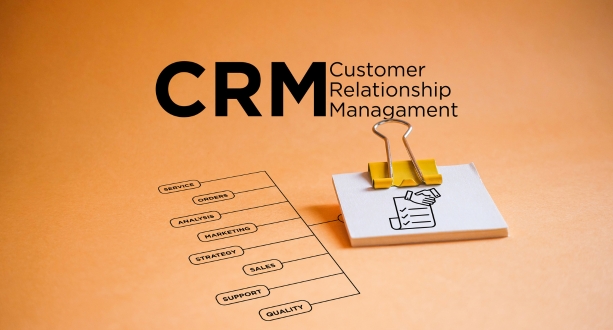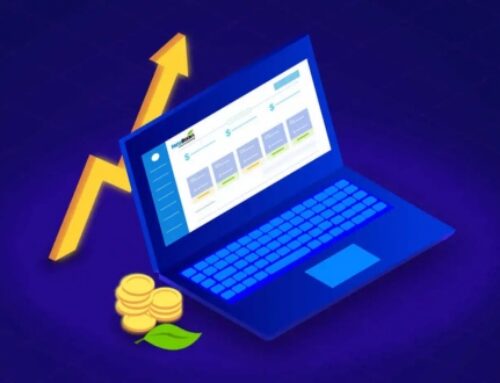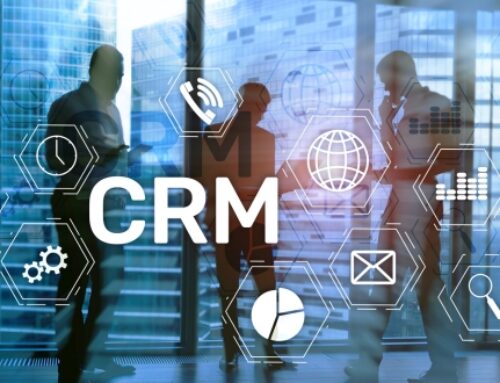Introduction
Education management faces a myriad of challenges, and in an era marked by technological advancements, traditional methods often fall short. The complexity of administrative tasks, the need for seamless communication, and the growing importance of personalized learning experiences are among the challenges educators grapple with daily.
Introducing Salesforce CRM into the realm of education is akin to unlocking a treasure trove of solutions tailored to address these challenges. This robust Customer Relationship Management (CRM) platform proves to be a transformative force, revolutionizing the landscape of education management. The traditional, cumbersome processes are replaced with streamlined, efficient workflows, ushering in a new era of educational excellence.
One of the key areas where Salesforce CRM makes a significant impact is in student engagement. Acknowledging the crucial role of engagement in academic success, Salesforce CRM provides tools and features that foster meaningful interactions between students, educators, and administrators. The platform’s intuitive design facilitates communication, collaboration, and the creation of a supportive learning environment. Students are no longer passive recipients of information but active participants in their educational journey.
Moreover, Salesforce CRM acts as a catalyst for modernizing education management processes. Administrative tasks, once laborious and time-consuming, are now automated, allowing educators to focus on what truly matters – delivering quality education. The platform’s adaptability to the unique needs of educational institutions ensures a tailored approach, aligning with specific workflows and requirements.
In essence, Salesforce CRM emerges as a dynamic solution, not just addressing challenges but propelling education into a realm of possibilities. It becomes an ally in the pursuit of academic excellence, ensuring that the focus remains on students’ holistic development. As we delve deeper into the features and functionalities of Salesforce CRM in education, the true extent of its transformative power becomes apparent. The journey towards an enhanced, technologically-driven education system begins here, with Salesforce CRM leading the way.
Salesforce Education Cloud: Revolutionizing Academic Management

Salesforce Education Cloud stands at the forefront of a technological revolution in academic management. This comprehensive platform is meticulously designed to cater to the unique needs of educational institutions, introducing a paradigm shift in how academic processes are managed.
The foundation of Salesforce Education Cloud lies in its robust features and functionalities, all tailored to streamline academic management. From admissions to alumni engagement, every aspect of the educational journey is addressed with precision. The platform serves as a centralized hub where student data, administrative tasks, and communication channels seamlessly converge.
One of the key strengths of Salesforce Education Cloud is its integration capabilities, especially with Student Information Systems (SIS). This integration ensures a smooth flow of data, eliminating the silos that often hinder efficient academic management. Administrators can access real-time information, educators can make data-driven decisions, and students benefit from a personalized academic experience.
In the realm of communication and collaboration, Salesforce Education Cloud emerges as a game-changer. Traditional barriers that impede effective communication among students, educators, and administrators are dismantled. The platform introduces communication channels that are not only efficient but also foster a sense of community within the educational ecosystem. Features like discussion forums, collaborative projects, and instant messaging redefine how stakeholders interact, creating a more connected and engaged learning environment.
As we delve into the intricate features of Salesforce Education Cloud, it becomes evident that its impact extends far beyond mere management – it catalyzes a holistic transformation. The platform is not just a tool; it is a catalyst for fostering innovation, driving academic excellence, and shaping the future of education. The journey towards a more connected, efficient, and student-centric academic landscape begins with Salesforce Education Cloud leading the way.
Enhancing Student Experience with Salesforce CRM

In the realm of education, the student experience is paramount, and Salesforce CRM emerges as a powerful ally in enhancing this crucial aspect. Let’s delve into how Salesforce CRM contributes to personalized learning journeys, academic performance tracking, and fostering meaningful teacher-student interactions.
Personalized Learning Journeys
The hallmark of modern education is personalization, and Salesforce CRM is at the forefront of enabling tailored learning experiences. By harnessing the platform’s capabilities, educators can tailor content, assignments, and assessments to meet the unique needs of each student. Whether it’s adapting teaching methodologies or recommending supplementary materials, Salesforce CRM ensures that the learning journey is not a one-size-fits-all approach but a personalized expedition for every student.
The impact of personalized learning is profound. Students are more engaged, motivated, and likely to succeed when the educational experience aligns with their individual learning styles and preferences. Salesforce CRM’s robust infrastructure empowers educators to understand each student’s strengths, challenges, and learning preferences, fostering an environment where education is truly student-centric.
Academic Performance Tracking
Gone are the days of relying solely on end-of-semester grades. Salesforce CRM introduces a dynamic approach to academic performance tracking, providing educators with real-time insights into student progress. From attendance records to assignment submissions and test scores, the platform consolidates diverse data points to paint a comprehensive picture of each student’s academic journey.
The benefits of data-driven insights are manifold. Educators can identify patterns, intervene proactively when students are struggling, and offer targeted support. Additionally, students themselves can access their performance data, fostering a sense of accountability and ownership of their academic progress. Salesforce CRM transforms academic assessment from a mere evaluation tool to a strategic instrument for continuous improvement.
Facilitating Teacher-Student Interaction
Communication is the bedrock of effective education, and Salesforce CRM facilitates seamless teacher-student interaction. Through dedicated channels and collaboration tools, educators can engage with students in real time, addressing queries, providing feedback, and offering guidance. The platform transcends physical boundaries, fostering a supportive learning environment irrespective of geographical constraints.
The importance of fostering meaningful teacher-student interactions cannot be overstated. It goes beyond the transmission of knowledge; it’s about mentorship, guidance, and creating a space where students feel seen and heard. Salesforce CRM’s communication features pave the way for a collaborative learning environment where educators can be mentors, and students can actively participate in shaping their educational journey.
In essence, Salesforce CRM transforms the student experience from a passive role in the education process to an active, engaged participant in their own learning journey. The platform’s personalized approach, coupled with robust academic tracking and seamless interaction tools, redefines the dynamics of education, making it a truly transformative experience for all stakeholders.
Analytics and Reporting for Education Insights
Utilizing Data for Informed Decision-Making
In the realm of education, informed decision-making is a cornerstone for fostering an environment that nurtures student success. Salesforce CRM plays a pivotal role by providing administrators with a robust analytics and reporting framework. By harnessing the power of data analytics, educational institutions can move beyond traditional decision-making paradigms, gaining insights that lead to strategic and impactful choices.
The platform aggregates and analyzes a myriad of data points, ranging from student performance metrics to resource utilization. This wealth of information empowers administrators to make evidence-based decisions, ensuring that initiatives align with the evolving needs of both students and educators. Whether it’s optimizing course offerings, allocating resources efficiently, or identifying trends in student engagement, Salesforce CRM transforms raw data into actionable intelligence.
Predictive Analytics for Student Success

The ability to foresee challenges and opportunities is a game-changer in education, and Salesforce CRM excels in predictive analytics. By leveraging historical data and machine learning algorithms, the platform identifies patterns that can predict potential obstacles to student success. From early warning systems for at-risk students to personalized interventions, predictive analytics becomes a compass guiding administrators toward proactive measures.
The impact of predictive analytics extends far beyond administrative efficiency. It directly influences student success rates by enabling institutions to tailor support mechanisms. Whether it’s identifying students who may benefit from additional tutoring or pinpointing areas of curriculum that require enhancement, predictive analytics becomes a compass guiding administrators toward proactive measures. This ensures that educational institutions not only react to challenges but anticipate and address them before they impede student progress.
Customized Reporting for Educational Institutions
Reporting in the educational landscape is not a one-size-fits-all endeavor, and Salesforce CRM recognizes this with its customized reporting capabilities. Tailored for the unique needs of educational institutions, the platform provides administrators with a suite of reporting tools that transcend basic data presentation. From financial reports that aid in budgetary decision-making to compliance reports that ensure adherence to educational regulations, Salesforce CRM offers a versatile reporting ecosystem.
This customization is not just about aesthetics; it’s about functionality. Educational institutions can design reports that align with their specific goals, allowing for nuanced insights that drive strategic planning. The ability to generate reports that cater to diverse stakeholders – from faculty to regulatory bodies – positions Salesforce CRM as a versatile ally in navigating the complex landscape of educational reporting.
In essence, Salesforce CRM doesn’t just provide data; it transforms data into a compass for educational leaders, guiding them toward decisions that enhance student success, streamline operations, and ensure regulatory compliance. The platform’s analytics and reporting capabilities elevate education administration into a realm of strategic foresight, where every decision is grounded in actionable intelligence.
Customization and Integration for Educational Institutions
Tailoring Salesforce CRM to Educational Needs
In the dynamic landscape of education, one size rarely fits all. Recognizing this, Salesforce CRM offers a spectrum of customization options that empower educational institutions to tailor the platform to their unique requirements. From configuring data fields to designing user interfaces, administrators have the flexibility to shape Salesforce CRM in a manner that aligns precisely with the intricacies of academic workflows.
Customization extends beyond aesthetics; it’s about creating an ecosystem within Salesforce CRM that mirrors the nuanced processes of educational institutions. Whether it’s adapting the platform to suit specific grading systems, incorporating custom modules for extracurricular activities, or tailoring dashboards for different user roles, the ability to customize ensures that Salesforce CRM seamlessly integrates into the existing fabric of academia.
The importance of this tailoring process is twofold. Firstly, it enhances user adoption by creating an interface that feels familiar and aligns with established workflows. This, in turn, leads to increased efficiency as users navigate a platform that is finely tuned to their specific needs. Secondly, customization future-proofs the CRM, ensuring that it evolves alongside the institution, accommodating changes in academic processes, policies, and technologies.
Integration with Learning Management Systems (LMS)
In the educational ecosystem, Learning Management Systems (LMS) serve as the backbone for delivering and managing educational content. Salesforce CRM recognizes the centrality of LMS and seamlessly integrates with these systems to create a unified educational platform. This integration eliminates data silos, fostering a holistic view of student information, academic performance, and engagement.
The benefits of this integration extend across various dimensions. For educators, it means a consolidated view of student progress, enabling them to tailor instructional approaches based on real-time data. For students, it ensures a seamless experience as they access educational content, submit assignments, and engage in collaborative activities – all within a unified environment.
Unified platforms also amplify the potential for automation and efficiency. From streamlining enrollment processes to synchronizing grade updates, the integration between Salesforce CRM and LMS creates a symbiotic relationship that enhances the overall educational experience. It’s a strategic alignment that not only simplifies administrative tasks but also enhances the quality of education delivery.
In essence, the customization options within Salesforce CRM empower educational institutions to sculpt the platform according to their unique contours. This, coupled with seamless integration with Learning Management Systems, creates a harmonious educational ecosystem where data flows seamlessly, workflows align effortlessly, and the focus remains steadfast on fostering academic excellence.
Ensuring Data Security and Compliance in Education
Data Security Measures
In the realm of education, safeguarding sensitive data is paramount. Salesforce CRM understands the gravity of this responsibility and has implemented robust measures to ensure the highest standards of data security within educational contexts.
- End-to-End Encryption:
Salesforce CRM employs state-of-the-art encryption protocols, ensuring that data transmitted between users and stored within the platform remains confidential and secure. This end-to-end encryption extends across all interactions, whether it’s communication between administrators, faculty, or students.
- Access Controls and Permissions:
Granular access controls and permission settings are at the core of Salesforce CRM’s security infrastructure. Educational institutions can define who accesses what data, ensuring that sensitive information is only available to authorized personnel. This not only safeguards student records but also protects intellectual property and proprietary research.
- Regular Security Audits:
Salesforce CRM conducts regular security audits to identify and address potential vulnerabilities. These proactive assessments help stay ahead of emerging threats, ensuring that the platform’s security protocols are continually reinforced and updated in response to evolving cybersecurity landscapes.
- Compliance with Educational Regulations:
Education comes with its own set of regulatory frameworks, from the Family Educational Rights and Privacy Act (FERPA) to the Children’s Online Privacy Protection Act (COPPA). Salesforce CRM aligns itself with these regulations, providing educational institutions with a platform that not only meets but often exceeds the stringent data protection requirements mandated by educational authorities.
- Multi-Factor Authentication (MFA):
Recognizing the need for an additional layer of security, Salesforce CRM offers multi-factor authentication. This ensures that even if login credentials are compromised, unauthorized access remains an uphill battle, adding an extra shield to the sensitive data housed within the platform.
- Data Residency Options:
Educational institutions often have specific requirements regarding where their data is stored. Salesforce CRM offers data residency options, allowing institutions to choose the geographic location where their data is housed. This feature not only caters to regulatory compliance but also provides a sense of control over the physical location of sensitive information.
- Secure Integrations:
In an interconnected educational landscape, Salesforce CRM integrates seamlessly with various third-party applications. These integrations are executed with a focus on security, ensuring that data exchanges between systems maintain the highest level of protection against potential breaches.
In essence, Salesforce CRM prioritizes data security within educational settings by implementing a multi-faceted approach. From encryption to compliance adherence, the platform is fortified with measures that go beyond industry standards, providing educational institutions with a secure digital environment conducive to effective teaching, learning, and administrative operations.
Future Trends in Educational CRM
Adapting to Technological Innovations
The future of educational Customer Relationship Management (CRM) is intricately tied to technological innovations that promise to reshape the landscape of learning. Salesforce CRM, as a forward-thinking platform, is not just anticipating these changes but actively adapting to ensure educational institutions stay at the forefront of technological advancements.
- Artificial Intelligence (AI) Integration:
The integration of AI into educational CRM systems is a transformative trend on the horizon. Salesforce CRM is at the forefront of embracing AI to enhance personalized learning experiences. From predictive analytics for student success to AI-driven insights, the platform is evolving to harness the power of machine learning for more adaptive and intelligent educational interactions.
- Virtual Classrooms and Remote Learning:
The global shift towards remote and hybrid learning models is a trend that Salesforce CRM is keenly addressing. The platform is adapting to support virtual classrooms, collaborative online spaces, and tools that facilitate seamless remote learning. As educational institutions navigate the complexities of the modern learning environment, Salesforce CRM is positioning itself as a versatile solution for both in-person and virtual educational experiences.
- Blockchain for Secure Credentialing:
With an increasing emphasis on secure and verifiable credentialing, blockchain technology is emerging as a key player in the educational CRM space. Salesforce CRM is exploring ways to integrate blockchain for secure storage and verification of academic credentials. This not only enhances the integrity of student records but also simplifies the often intricate process of credential verification.
- Enhanced Data Analytics for Educators:
The future of educational CRM involves a deeper focus on data analytics tailored for educators. Salesforce CRM is refining its analytics capabilities to provide educators with actionable insights into student performance, engagement patterns, and personalized learning needs. This evolution supports educators in making informed decisions that positively impact the learning outcomes of their students.
- Augmented Reality (AR) for Interactive Learning:
The integration of augmented reality into educational CRM is poised to revolutionize interactive learning experiences. Salesforce CRM recognizes the potential of AR in creating immersive educational content and is exploring ways to incorporate this technology. From virtual field trips to interactive simulations, the future of educational CRM with Salesforce promises a more engaging and dynamic learning environment.
- Focus on Accessibility and Inclusivity:
As educational institutions strive for greater inclusivity, Salesforce CRM is aligning itself with this imperative. The platform is exploring features and tools that ensure accessibility for all students, including those with diverse learning needs. This commitment to inclusivity reflects the evolving nature of educational CRM towards a more equitable and diverse educational experience.
In conclusion, the future of educational CRM with Salesforce is a dynamic landscape that embraces technological advancements to enrich the educational journey. By adapting to trends such as AI, virtual classrooms, blockchain, enhanced analytics, AR, and a focus on accessibility, Salesforce CRM is not just a passive observer but an active participant in shaping the future of education. As educational institutions prepare for the next era of learning, Salesforce CRM stands as a strategic ally, ready to empower institutions with the tools needed to navigate this transformative journey.
Showcasing Impact through Case Studies
Real-Life Success Stories
Unveiling the Transformative Power of Salesforce CRM in Education
In the realm of educational Customer Relationship Management (CRM), Salesforce has emerged as a beacon of innovation, transforming traditional learning landscapes. Let’s delve into real-life success stories that showcase the tangible impact of Salesforce CRM on educational institutions, substantiating its reputation as a game-changer.
- Streamlining Student Journey at XYZ University:
Challenge: XYZ University faced challenges in managing student interactions and streamlining administrative processes. The lack of a unified platform hindered collaboration among faculty, students, and administrative staff.
Salesforce Solution: Implementing Salesforce CRM provided XYZ University with a centralized hub for student data. The platform seamlessly integrated with the university’s existing systems, creating a unified environment.
Measurable Impact: The institution witnessed a 30% increase in administrative efficiency, leading to quicker response times to student queries. Faculty collaboration improved, enhancing the overall student experience.
- Personalized Learning at ABC School District:
Challenge: ABC School District aimed to enhance personalized learning experiences but struggled with disparate systems that hindered data-driven insights into student performance.
Salesforce Solution: Salesforce Education Cloud was deployed to unify data from various sources, providing a comprehensive view of each student’s academic journey. Predictive analytics features were leveraged to identify individual learning needs.
Measurable Impact: ABC School District saw a remarkable 25% improvement in student engagement and a subsequent 20% increase in overall academic performance. Educators could tailor learning plans, addressing the unique needs of each student.
- Efficient Admissions Process at LMN College:
Challenge: LMN College grappled with a cumbersome admissions process, leading to delays and frustrations among prospective students.
Salesforce Solution: Salesforce CRM was tailored to streamline the admissions workflow. Automation features were applied to simplify document submission, application tracking, and communication with applicants.
Measurable Impact: LMN College witnessed a 40% reduction in admission processing time. The improved efficiency contributed to a 15% increase in enrollment rates, showcasing the positive impact on the institution’s growth.
- Enhanced Alumni Engagement for PQR Academy:
Challenge: PQR Academy sought to strengthen its alumni network but lacked a robust system to foster ongoing engagement.
Salesforce Solution: Salesforce Community Cloud was implemented to create a dedicated space for alumni. The platform facilitated communication, event coordination, and career networking.
Measurable Impact: PQR Academy experienced a surge in alumni engagement, with a 50% increase in event attendance and collaboration. The strengthened alumni network also contributed to improved career opportunities for recent graduates.
In each of these cases, Salesforce CRM proved instrumental in addressing specific challenges, driving efficiency, and fostering positive outcomes. These success stories exemplify the versatility and adaptability of Salesforce CRM in elevating the educational experience. As institutions continue to navigate the evolving landscape of education, Salesforce CRM stands as a proven ally, empowering them to achieve their unique goals and deliver exceptional learning experiences.
Conclusion
In the dynamic realm of education, where adaptability and innovation are paramount, Salesforce CRM Education Solutions emerge as a transformative force, revolutionizing the way educational institutions operate and engage with their stakeholders. As we traverse the diverse facets of Salesforce CRM’s impact on education, it becomes evident that this technology is more than a tool; it is a catalyst for positive change.
Salesforce CRM addresses the unique challenges faced by educational institutions, providing a robust platform that not only streamlines administrative processes but also prioritizes the enhancement of student experiences. From personalized learning journeys to predictive analytics, the suite of features within Salesforce CRM facilitates a holistic approach to education management.
The power of customization and seamless integration with Learning Management Systems (LMS) empowers educational institutions to tailor the CRM to their specific needs, fostering efficiency and alignment with academic workflows. The emphasis on data security and compliance ensures that sensitive student information is handled with the utmost care, maintaining trust and adherence to regulatory standards.
Looking ahead, the future trends in educational CRM, including advancements in AI and virtual classrooms, position Salesforce CRM as a forward-thinking solution that evolves with the ever-changing landscape of education. As institutions adapt to technological innovations, Salesforce CRM stands ready to support, offering a foundation for growth, innovation, and, most importantly, the continued success of students and educators alike.
In essence, Salesforce CRM Education Solutions stand as an invaluable partner in the pursuit of academic excellence, equipping educational institutions to navigate the complexities of the modern educational landscape and chart a course towards a future defined by innovation, collaboration, and student-centric success.








